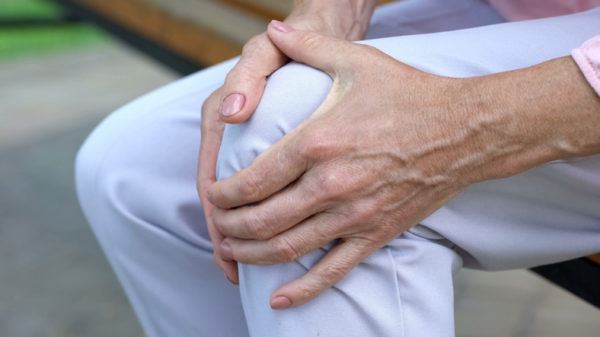 With age, our bones become more fragile, and maintaining bone health should be a priority. Osteoporosis, or deterioration of the bone structure, leads to increased fragility, fractures, and falls. Injuries from falls can be devastating. It is crucial to improve and preserve your bone health in order to avoid them. Our NYC orthopedic surgeons outline the best ways to improve your bone health and reduce your risk of osteoporosis.
With age, our bones become more fragile, and maintaining bone health should be a priority. Osteoporosis, or deterioration of the bone structure, leads to increased fragility, fractures, and falls. Injuries from falls can be devastating. It is crucial to improve and preserve your bone health in order to avoid them. Our NYC orthopedic surgeons outline the best ways to improve your bone health and reduce your risk of osteoporosis.
What Is Osteoporosis?
Osteoporosis is a disease in which the density and strength of the bones deteriorate, leading to a loss of mass and an increase in the risk of breaks and fractures. Getting older causes the bones to weaken and, since bones do not renew at the same rate in older people, the bones only become weaker over time. Fractures are common in the hips and knees in people over 60. Symptoms of osteoporosis include back pain, poor posture, and reoccurring bone fractures.
What are the risk factors?
Aside from age, there are several other risk factors to consider:
- Being female: Women have a higher risk of developing osteoporosis, especially after menopause, as the reduction in estrogen weakens the bones.
- If you have a family member with osteoporosis, your risk of developing the disease is higher.
- Thyroid conditions: High levels of thyroid hormone can contribute to bone loss.
- Vitamin and mineral deficiencies: This can lead to the thinning of the bones.
- Sedentary lifestyle: Individuals who don’t exercise regularly tend to have weaker bones than those who do.
Can osteoporosis be prevented?
While some factors are genetic, there are certain lifestyle changes you can make to improve your bone health, such as improving your diet and exercising more frequently.
Diet
Eating a diet rich in fruits and vegetables is vital for good health. The two biggest deficiencies to keep in mind when it comes to building strong bones are vitamin D and calcium. Vitamin D and calcium work together to rebuild and strengthen bones. A deficiency in one or the other (or both) significantly increases your risk of osteoporosis. Foods that are rich in calcium include leafy greens, fish, and dairy products.
Foods such as milk, eggs, and cheese all contain vitamin D. However, the best source is sunlight, and vitamin D deficiencies are common in people who live in a high latitude, spend a lot of time indoors, or wear sunscreen. Talk to your doctor about having your levels checked if you are concerned about low vitamin D. It may be beneficial to take a vitamin D supplement to maintain adequate levels.
Exercise
Staying active is instrumental in maintaining the overall health of your body. It is also crucial for improving and supporting the health of your bones. Low-impact exercises, like walking and jogging, can help delay bone loss, but the best way to actively rebuild bone mass is strength training. Strength training exercises, such as lifting weights and doing push-ups, are effective ways to build muscle, which in turn increases bone strength. Other weight-bearing exercises, like tai-chi or yoga, encourage bone cell regeneration and prevent further bone loss.
Diagnostics and Support
If you are concerned about your bone health or have symptoms of osteoporosis, there are tests that Island Musculoskeletal Care MD, PC can perform to determine the health of your bones, including X-rays, bone density scans, and MRIs. Depending on your specific case, our doctor will determine which type of imaging is right for you.
If you have already suffered a fall or other bone injury, talk to us about physical therapy or ongoing monitoring of your bone health.






















